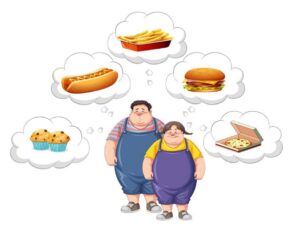Weight loss is a topic that has gained significant attention in recent years, as more and more people strive to achieve a healthier lifestyle. While there are countless diets and exercise programs available, it is important to understand the basic principles of how your body uses energy and stores fat to effectively manage your weight. In this article, we will delve into the science behind weight loss and provide you with a better understanding of the processes involved.
The Energy Balance Equation
At its core, weight loss is a result of an energy imbalance in the body. The energy balance equation is a simple concept that states that weight is gained when energy intake exceeds energy expenditure, and weight is lost when energy expenditure exceeds energy intake.
Energy intake refers to the calories consumed through food and beverages, while energy expenditure refers to the calories burned through physical activity and bodily functions. To lose weight, you need to create a calorie deficit by either reducing your energy intake, increasing your energy expenditure, or a combination of both.
Basal Metabolic Rate (BMR)
Your basal metabolic rate (BMR) is the number of calories your body needs to maintain basic bodily functions at rest. This includes functions like breathing, circulating blood, and cell production. BMR accounts for the majority of your total energy expenditure, typically around 60-75%.
Factors that influence your BMR include age, gender, body composition, and genetics. Generally, men tend to have a higher BMR than women due to higher muscle mass. Additionally, muscle mass is more metabolically active than fat, meaning that individuals with more muscle burn more calories at rest.
Thermic Effect of Food (TEF)
The thermic effect of food (TEF) refers to the calories burned during the digestion, absorption, and processing of nutrients. Different macronutrients have varying effects on TEF. Protein has the highest thermic effect, followed by carbohydrates, and then fats.
By consuming a diet rich in lean protein, you can increase your TEF and boost your metabolism. This is one reason why high-protein diets are often recommended for weight loss. However, it is important to maintain a balanced diet that includes all essential nutrients.
Physical Activity
Physical activity plays a crucial role in weight loss. Not only does it increase energy expenditure, but it also helps to build and maintain lean muscle mass. Both aerobic exercise and strength training are important for overall health and weight management.
Aerobic exercise, such as running, swimming, or cycling, burns calories during the activity and can continue to burn calories even after you’ve finished exercising. Strength training, on the other hand, helps to increase muscle mass, which in turn increases your BMR.

Understanding Fat Storage
When you consume more calories than your body needs, the excess energy is stored as fat. Fat is primarily stored in adipose tissue, which is found under the skin and around internal organs. Hormones, such as insulin, play a role in the regulation of fat storage.
When you create a calorie deficit through diet and exercise, your body starts to tap into its fat stores for energy, leading to weight loss. However, it is important to note that spot reduction, or losing fat from specific areas of the body, is not possible. Fat loss occurs throughout the body, and genetics often determine where fat is lost first.
Understanding the science behind weight loss can help you make informed decisions about your diet and exercise routine. By creating a calorie deficit through a combination of reduced energy intake and increased energy expenditure, you can effectively manage your weight. Remember to prioritize a balanced diet, regular physical activity, and a healthy lifestyle for long-term success.
Weight loss is not a quick fix, but rather a journey that requires patience and consistency. By applying the principles discussed in this article, you can embark on a path towards a healthier and happier you.
